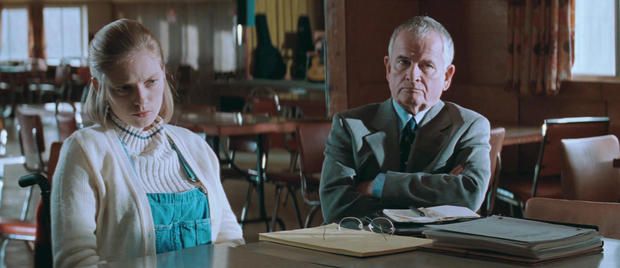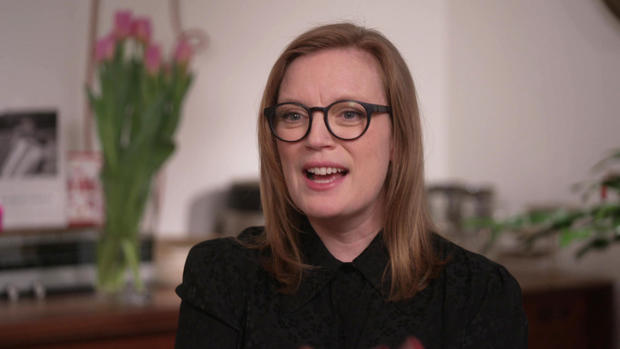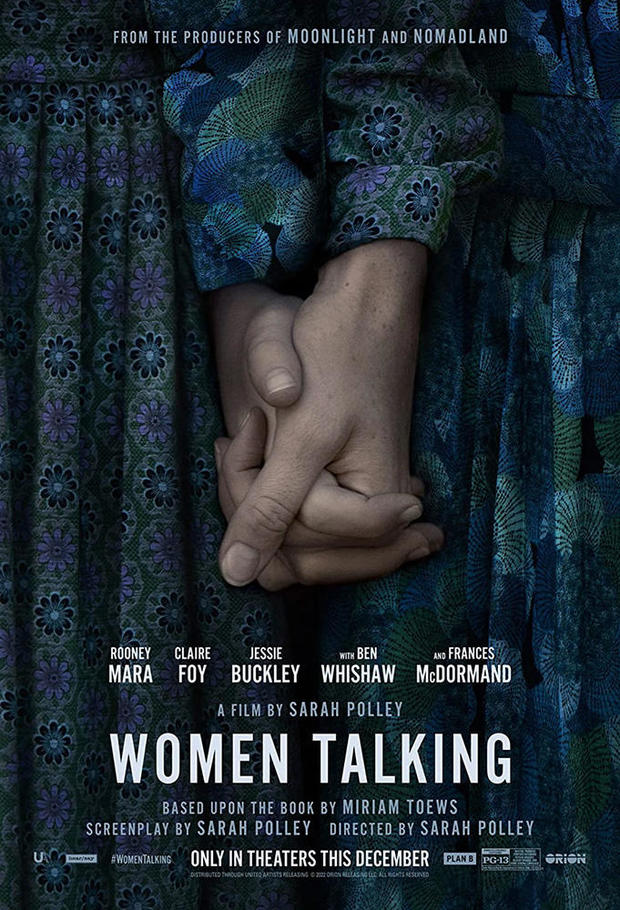“Women Talking” writer-director Sarah Polley: “I approach filmmaking with a lot of gratitude now”
In Sarah Polley’s film “Women Talking,” the women in a cloistered religious community have been sexually abused. They decide to vote on whether to leave. “What these women are talking about is literally breaking down one world and building a next,” Polley said.
The Oscar-nominated screenplay, adapted from a book by Miriam Toews, was written by Polley, who’s also the film’s director. She told Mason she was initially reluctant to direct herself: “I have three little kids.”
Polley told Frances McDormand, who co-stars in the film and co-produced it, that she couldn’t handle the long, grueling days away from her children. “There was this little pause, and then Frances McDormand just kind of went, ‘Well, men have written the rules of this industry, and this movie’s called “Women Talking,” so we’re gonna change the rules. Amen, sister. We’re just going to do it!'”
To watch a trailer for “Women Talking” click on the video player below:
“Sunday Morning” met Polley in her hometown, Toronto, where she gave us a tour of a local skating rink. “In this country, we have hockey,” she said. “You’re welcome!”
But she didn’t grow up on the ice. She grew up on film sets, acting from the age of four. When asked if she liked being a child actor, she replied, “By and large, it was a terrible experience.”
She was traumatized running through explosions in “The Adventures of Baron Munchausen.” At age 10 she told the CBC, “A lot of times when the explosions and things were going off, it was really scary.”
Polley was called “Canada’s sweetheart” when she starred in the 1990s series “Road to Avonlea,” adapted from books by “Anne of Green Gables” author Lucy Maud Montgomery. But she didn’t like the attention that came with her fame. “Being recognized was really scary for me,” Polley said. “And uncomfortable.”
At 11, Polley lost her mother to cancer. A few months later, she was diagnosed with scoliosis. “My spine growing completely out of control into this curve, which I knew I needed surgery for. I think all of those things just kind of came to a head. And so, that was a really big moment of breakage, in terms of just everything kind of crumbling.”
At 17, she was cast in Atom Egoyan’s film, “The Sweet Hereafter,” playing a girl paralyzed in a school bus accident.
Mason said, “You do so much with facial expressions in that movie.”
“I’d been going through so much since I was so little, and there was no place to put it,” Polley said. “And suddenly, I was able to put everything that had ever happened to me that I hadn’t said into these silent moments.”
Alliance Communications
Polley won glowing reviews. In 1999, she made the cover of Vanity Fair’s Hollywood issue, and reached a turning point in 2000, when she was cast as rock groupie Penny Lane in Cameron Crowe’s film, “Almost Famous.”
She walked away from it, explaining, “It became really clear to me really fast, whoever played that part was going to become a huge star. I knew definitively I didn’t want that from my early experiences of fame, which were so negative. So, I thought, why am I getting on this train?”
“Were there a lot of people who said, ‘What are you doing?'” asked Mason.
“Oh yeah! If people weren’t coming by the house in Toronto, they were flying in to knock on my door and go, ‘So you’re not going to be Penny Lane in the new Cameron Crowe movie? That’s a fascinating choice!'”
CBS News
In the end, the part of Penny Lane was played by Kate Hudson. Polley said she does not regret it: “Never. Because I never would have made my own films. It came directly from that moment.” [Her previous films as director include “Away From Her,” starring Julie Christie; “Take This Waltz,” with Michelle Williams; and a documentary about her family, “Stories We Tell.”]
Polley recounts some of her traumas in her recent memoir, “Run Towards the Danger,” writing: “The past and the present … are in constant dialogue.”
In the book, she alleges she was sexually assaulted when she was 16.
Orion/United Artists
Mason asked, “I’m wondering the degree to which that was in conversation with you when you were making this film?”
“I think a lot of experiences I had as a young woman, I think they made their way into the process of thinking about this film, absolutely,” she replied.
“Do you feel you look at yourself any differently after re-examining a lot of this?”
“After I told these stories, I did feel lighter,” Polley said. “I just have a buoyancy now that I don’t think I had before.”
“Has that buoyancy in any way changed the way you approach filmmaking?”
“Yeah, I think I approach filmmaking with a lot of gratitude now,” Polley said. “I didn’t have a second that went by that I wasn’t so grateful to be there every day.”
For more info:
Story produced by Mary Lou Teel. Editor: Steven Tyler.
See also:
For all the latest Automobiles News Click Here
For the latest news and updates, follow us on Google News.





